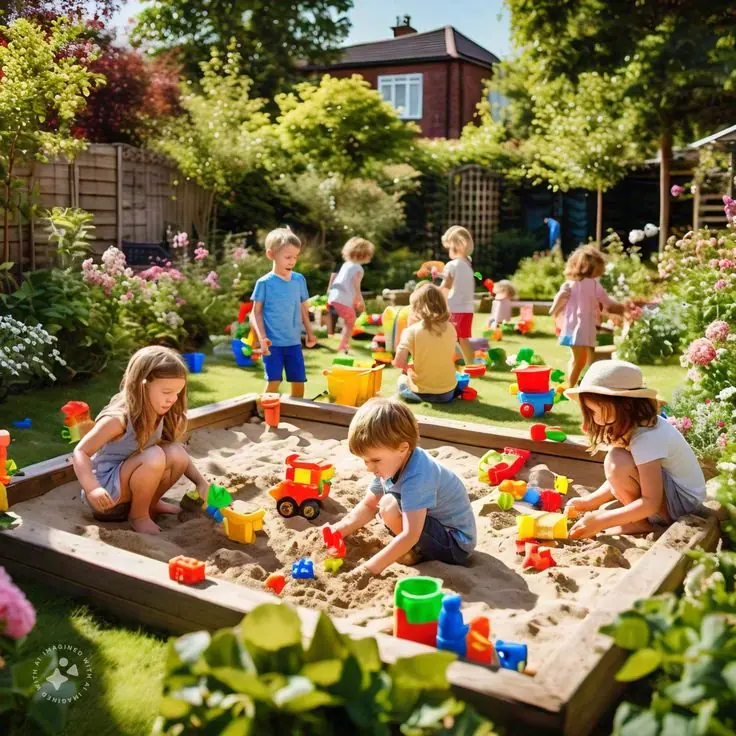
The Hidden Power of Outdoor Play: How One Hour a Day Shapes Young Minds

In an age dominated by screens and indoor entertainment, the simple act of sending children outside to play can be transformative. Spending at least 60 minutes outdoors each day offers far more than physical exercise — it cultivates essential cognitive skills that will serve children for life.
A Natural Playground for the Mind
Outdoor environments are ever-changing, unpredictable, and full of opportunities for exploration. Unlike controlled indoor settings, nature presents challenges that require quick thinking and adaptability. When children design a makeshift fort, navigate the twists of a playground obstacle, or invent entirely new games with friends, they’re practicing problem-solving in real time. Each moment of play becomes an exercise in decision-making, teamwork, and creative thinking.
Freedom That Fuels Creativity
Structured activities have their place, but the open-ended nature of outdoor play allows kids to experiment without fear of “getting it wrong.” With no rigid rules or step-by-step instructions, children learn to test ideas, adapt strategies, and embrace unexpected outcomes. This freedom encourages resilience — the ability to recover from setbacks and find new solutions — and fosters a mindset that sees challenges as opportunities rather than obstacles.
Nature’s Sensory Advantage
The outdoors offers a sensory richness that indoor spaces can’t match. The feel of grass underfoot, the rustle of leaves, the warmth of sunlight, and the smell of fresh air all stimulate the brain in unique ways. This multisensory input helps children process information more effectively, improving focus and enabling them to view problems from multiple angles.
Building Skills for a Lifetime
Daily outdoor activity does more than improve physical fitness; it lays the groundwork for lifelong learning. Children who regularly engage with the natural world tend to develop sharper thinking, stronger collaboration skills, and a greater capacity for creative problem-solving. They also gain an appreciation for the environment, fostering habits that benefit both themselves and the world around them.
In a society where structured schedules and digital distractions often crowd out free play, protecting that one hour a day outdoors could be one of the most impactful choices parents and educators make — shaping not just healthier bodies, but brighter, more adaptable minds.
News in the same category


Tourist’s Selfie Stunt Turns Into Terrifying Crocodile Attack in the Philippines

Music and the Mind: How Playing Tunes to Babies Boosts Early Brain Development

People with green eyes are special for these reasons with…

Meaning Behind the Tradition of Coins on Gravestones

Japan’s Tooth Regrowth Drug: Dental Health Revolution!

Resilient Dog Overcomes Neglect and Thrives, Inspiring Change in Animal Welfare

9-year-old dies 10 minutes after posing with this note: Police soon discover terrible mistake that killed her

Witnesses speak out after passenger 'sliced open' as waterslide breaks on world's biggest cruise ship

Three beachgoers dead after sea mines wash up on beach and explode at popular tourist spot

Mom explains why she doesn’t regret giving her daughter’s pony to zoo to become lion food

Netflix is losing 91% rated series that's ‘better the second time’ and you can binge in one day

Tragic Tale of Lost Companion: Finding Peace After a Heartbreaking Ordeal

If you see square waves forming in the ocean, get out of the water immediately

Ever Seen This Creepy Wall-Clinging Moth? Meet the Kamitetep

Disturbing 911 call before police found girl, 10, on highway as dad and girlfriend arrested on murder charges

Reason NY could owe Peanut the Squirrel owners $10,000,000 after pet was seized and euthanized by state

‘Ghost Boy’ wakes up from a coma after 12 years – Then he Reveals his spine-chilling secret

Elephants: Nature’s Gentle Giants with Surprising Swimming Skills
News Post

7 Warning Signs Your Body May Have Parasites

Cloves, Ginger, and Lipton Tea: The Golden Elixir Your Body Craves

Classic Baked Cheesecake with Chocolate Sauce & Ice Cream

Decadent Chocolate Cupcakes with Chocolate Ganache Frosting 📝 Ingredients

A Lost Puppy Wandered Into the Police Station—minutes Later, They Realized Why He Was There

HE HELD HIS K9 PARTNER WITH A SMILE—BUT THE STORY BEHIND THIS PHOTO WILL BREAK YOU

No One Remembered My Birthday—Except A Stranger Who Shouldn’t Have Known

Crispy Waffles with Fresh Berries and Maple Syrup

Chocolate-Drizzled Soft Serve Ice Cream Cone

Ancient Amazonian Kidney Cleanse: Detox with Nature’s Finest Herbal Infusion

Taro Unveiled: The Ancient Root That’s Transforming Modern Wellness

Unlock the Hidden Power of Aloe Vera: The Cancer-Fighting Secret You Need to Know

Clear Vision Naturally: The Ultimate Smoothie to Combat Cataracts and Myopia

Dog Rescued After Being Left Chained Outside in Torrential Rain

Shotley’s Journey: From Neglect to a Loving Home

Celestial Jewelry: Moon Meets the Seven Sisters at Dawn

Lemon & Ginger: The Zesty Duo for Vibrant Digestion, Immunity, and Energy

Discover the Hidden Power of Cloves: Simple Home Remedies to Transform Your Health 🌿

The Nightly Benefits of Eating Raw Garlic Before Bed
